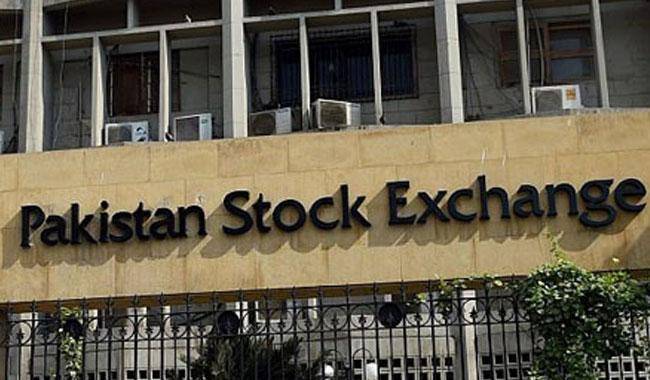LAHORE - Pakistan market continued its fall for the second year in a row, down 8 percent in 2018. This fall in two successive years is after a period of 22 years. In market capitalization, Pakistan lost $26b in 2018.
According to stock market experts, falling global market financial markets along with deteriorating macros affected the Karachi bourse along. Moreover, investors remained skeptical due to 400bps+ higher policy rate, 20 percent+ currency devaluation, high external & fiscal deficit and delay in International Monetary Fund (IMF).
Topline market experts are of the view that for foreign investors, Pakistan equities remained one of the worst markets in 2018 as the benchmark KSE-100 index posted its decade’s worst performance in dollar terms, down 27 percent as dollar gained 26 percent against Pakistani Rupee.
When comparing Pakistan’s market with global equities, KSE-100 index stood out as the world’s 5th worst performing market in 2018, as per Bloomberg (based on total return), closing the year just 1 rank above world’s second largest economy (China) whose market (down 27 percent) saw an erosion of more than $2tn worth of market value. Due to 2018 being the year of general elections (held in Jul 2018), the cloud of political uncertainty gripped the market since the beginning of the year while twin deficits (fiscal deficit settled at 6.6 percent and current account deficit settled at 6.1 percent of GDP in FY18) weakened any prospect of a stable economy.
Contrary to market’s expectations, cricketer-turned-politician Imran Khan elected to bat as his party PTI, for the first time, won Pakistan’s general elections (July 25, 2018), grabbing 44 percent seats. PTI seats were way ahead of PML-N that won 25 percent seats vs 47 percent seats won in 2013 elections (became the ruling party).
With clarity over political affairs, market rallied 5.3 percent (2,217 pts) during first 3 sessions post elections (Jul 26, 2018), which was more than 4 percent gain posted by the market in first 6 months of 2018.
The biggest rally of the year was seen when Saudi’s Arabia commitment to provide $6b financial package ($3b deposit and $3b deferred oil payment facility) to Pakistan made headlines on Oct 23 2018, after Prime Minister Imran Khan’s successful visit to the country. In the next 8 consecutive sessions, the market gained 12 percent or 4,289 pts.
However, the rally was short lived as market moved closer to Morgan Stanley Capital International’s (MSCI) Nov 2018 Semi-Annual review. In the Semi-Annual index review, Pakistan lost two (Lucky Cement & United Bank) of its 5 stocks as they were removed from MSCI Global Standard Index and demoted to MSCI Global Small Cap Index for failing to meet MSCI Emerging Market Index market capitalization requirement.
Investors’ confidence was further dented due to delay in getting IMF bailout program to fill the external financing gap of $21-22b and lack of clarity over economic roadmap.
Meanwhile, on the last day of 2018 on Monday, the KSE-100 index closed the outgoing year with a volatile trading session, where the index remained under pressure due to political tension in the country. For month of December, 2018 the index is down 8 percent MoM (or -3,430 pts), where negative sentiments were fueled by political tension in the country, volatile international oil prices, uncertainty about the government entering into an IMF program, weak macros and poor expected corporate earnings. The confirmation that the United Arab Emirates (UAE) will be depositing $3b with the State Bank of Pakistan to help the country with its depleting foreign exchange reserves crisis was unable to alter investor sentiments. For 4Q2018 the index is down 10 percent QoQ (or -3931 points).
Sector-wise for the month of December, 2018 commercial banks were the worst performing sector eating away 973 points, despite the SBP increasing interest rates by 150bps last month. E&P’s were the second worst performers, chipping away 717 points, due to international oil prices hitting a 17 month low during the month.
Investor participation improved as traded volumes rose by 30 percent to 226m, while traded value increased by 34 percent to $80m. For the month, daily average traded volume was 131m shares, while the average value traded was $44m.






